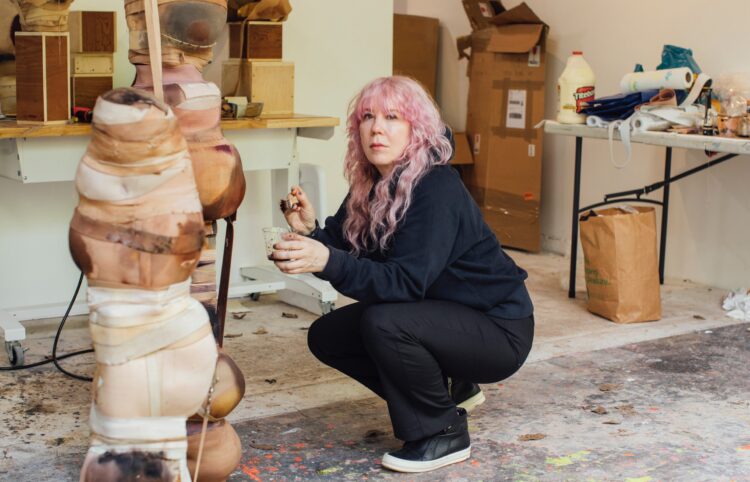Pass It On: Curator Lindsay Howard Offers Tips for Artists

‘Daisy’ by Pascual Sisto (2016) HD video, 7:02, loop. Image courtesy of Pascual Sisto, from bitforms exhibition “Temporary Highs” curated by Lindsay Howard
No artist lives in a vacuum. Even though the art world is increasingly competitive, it’s possible to share helpful information about how to make your art practice succeed. That’s why we’re starting a series called “Pass It On,” where we ask people to share what has worked for them to get ahead in the art world. We’ll hear from artists and curators in all mediums including digital, visual and film, as well as all around the country.
For our first post, we hear from independent curator Lindsay Howard, who was on the selection committee for Creative Capital’s 2016 Emerging Fields category. A new exhibition she curated, entitled Temporary Highs, will open at bitforms gallery in New York on June 2ndand remain on view through July 31st.
Your gallery works for you, not the other way around. They’re there to offer guidance but ultimately you “own” the decisions around your work, which means educating yourself on materials, fabrication techniques, marketing and brand development, the art market, and who’s who in the collector world.
Add influential curators, gallery directors, and collectors to your mailing list. We want to know what’s on your mind, what’s happening in your studio, and what shows you have coming up. I appreciate receiving the occasional email blast because it reminds me of an artist, and keeps them fresh in my mind for exhibitions, commissions, and interviews.
Don’t delete your social media accounts. I know, I know, it’s superficial bullshit and the fantasy of living in a notification-free world is real, but if you’re not posting images of your work and telling your story, then random people on the internet will do it. Take responsibility for your work. Be present.

‘Still Alive no. 1’ by Addie Wagenknecht (2016) Giclée print mounted on aluminum. Made in collaboration with Aiala Hernando. Image courtesy of bitforms gallery, New York, exhibition curated by Lindsay Howard
Respond to emails quickly. If you’re so busy that you can’t respond in a timely way, then hire an assistant to do it for you. If you’re that busy and you can’t afford an assistant, you need to raise your rates.
Get smart about your books and develop a system for keeping track of invoices. When a work sells, invoice the gallery. When you agree to do an artist talk, email an invoice in advance. Set terms for payment that allow you to keep a consistent cash flow, and send professional follow up emails when someone neglects to pay.
Read contracts carefully, and know that everything is a negotiation. Don’t agree to any terms that make you uncomfortable. Find a way to make it work for you, and advocate on your behalf. If you need to make a concession, try to make sure that it’s balanced by a change in your favor elsewhere.
You don’t have to live in New York, Los Angeles, or London to have a successful art career (most of the artists I work with live in rural locations), but if you live somewhere else then you have to put more effort into getting your name out there. Make the most of your visits to the major cities by scheduling meetings with curators, attending exhibition openings, and reconnecting with other artists.
If a writer wants to interview you, ask to do it over email so you can avoid mistakes in transcription and know exactly what will be published before it’s out in the world. Use their questions as suggestions, but shape the conversation to express whatever’s most important to you.
To read more about Temporary Highs, curated by Lindsay, click here.
